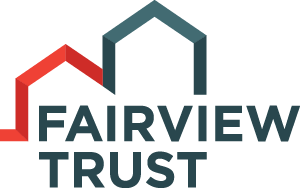Integrated Housing
Deadline:
2025 applications due August 1st.
Integrated Housing for Oregonians with Intellectual and Developmental Disabilities (IDD)
The Fairview Trust Fund supports projects that focus on improving housing for people with an intellectual or developmental disability in Oregon. Our goal is to create 250 new units of integrated, affordable housing for people with I/DD by 2030. At least 25% of the units will be in rural or other underserved areas.
Funding Priorities
The Fairview Trust is dedicated to supporting projects that align with our core mission of enhancing housing opportunities for individuals with IDD. Our focus is on projects that foster community integration, support independent living, offer affordable housing solutions, and improve overall quality of life through enhanced accessibility and the implementation of Universal Design principles. Below, we outline our understanding of these key terms:
Community Integration: Our mission emphasizes the cultivation of inclusive communities for residents with IDD. In apartment complexes, this typically involves ensuring 8% to 20% of units are preferentially designed for individuals with IDD, with accessible units and common areas distributed throughout to foster social interaction and prevent isolation. In neighborhood settings, we aim to integrate homes into the community fabric, encouraging interaction and active community participation.
Independent Living: We support projects that enable residents with IDD to live as independently as possible, with or without support services. Designs should empower individuals to manage their daily lives and enhance personal autonomy. Applicants should also have a relationship with, or have a plan to develop a relationship with a local service provider for people with IDD. A comprehensive list of service providers who support individuals living with IDD can be found at https://www.oregon.gov/odhs/idd/Pages/cddp.aspx
Affordability: We define affordable housing as affordable for households earning at or below 80% of the Area Median Income (AMI). However, applicants are encouraged to prioritize individuals earning at or below 50% AMI and, where possible, 30% AMI.
Accessibility Enhancements: We encourage using funds to increase the number of fully accessible units in housing developments. This means adapting existing units to surpass the standards set by Uniform Federal Accessibility Standards (UFAS) or other public funding requirements.
Universal Design Implementation: The Fairview Trust is committed to advancing projects that embody the principles of Universal Design (UD), creating environments that are accessible, usable, and beneficial to all individuals, regardless of their age, size, ability, or disability. Projects should go beyond the baseline requirements of the Americans with Disabilities Act (ADA) and other federal/state design standards. Key UD principles include Equitable Use, Flexibility in Use, Simple and Intuitive Use, Perceptible Information, Tolerance for Error, Low Physical Effort, and Size and Space for Approach and Use. Applications are encouraged to consult this Universal Design toolkit for a comprehensive understanding of these principles and how to apply them.
Application Scope
We have allocated a total of up to $700,000 for our 2025 grantmaking cycle and invite applications that align with our core objectives of community integration, independent living, affordability, accessibility, and Universal Design. Projects should fall into one of the following two categories:
Shovel-Ready Projects: We are seeking to fund shovel-ready projects, with a focus on capital expenditures for new housing developments or substantial renovations of existing units. Typically, this refers to projects that are substantially funded, with at least 80% of funds committed, reserved, or identified in the application plan. Financing in underwriting can be considered as 'reserved'. Projects must establish a preference for serving individuals with IDD, particularly those receiving developmental disability (DD) services. We continue to prioritize developments that already incorporate some measure of Universal Design.
Early-Stage Development Support: Recognizing the need to build capacity for agencies interested in housing but requiring assistance to plan and initiate projects, we also offer support for early-stage development. This includes helping agencies identify developer partners, conduct feasibility studies, and other preparatory activities that lay the groundwork for successful housing projects for individuals with IDD.
Additional Requirements
Nonprofit Applicants: Applications must be submitted by nonprofit organizations. Nonprofits can collaborate with for-profit owners/developers.
Avoid Group Homes and Clustering: The Fund will not support group living situations or apartment projects that intentionally cluster individuals with IDD. Similar unit types (like 1 or 2 bedrooms) may be grouped due to design constraints, and as a result individuals who experience IDD may live adjacent to or near one another as a result of availability of units of an appropriate or desired size. This is not “clustering” per se. Rather “clustering” occurs when individuals experiencing IDD are intentionally separated from others.
Application Process
Complete applications will be reviewed by the Fairview Trust Advisory Board and will include both qualitative and quantitative analysis. A scoring reference is included as a part of the application packet. Recommendations for funding will be made by the Fairview Trust Advisory Board. The Oregon Community Foundation’s Board has final decision-making authority.
Additional Application Details
Please fill out the application form questions below and attach the required documents before submitting.
Required Attachments
The following must be attached to your application.
Project capital budget showing how our funds would be allocated. (Please use the budget spreadsheet.)
An estimated operating budget. You may attach your own version or optionally use the template in the second tab in the link above.
List of current board members, and bios
Most recent audited financial statements
501(c)(3) tax-exemption letter from the IRS
How the Applications will be Evaluated
The scoring rubric is available for download here.
Questions?
If you have any questions, please send an email to: fairview@droregon.org.
